Psychopass Quotes and the System Continues
Psycho-Pass: The Ethics of an "Ideal" Society
Psycho-Pass presents us with a fascinating concept: a society where everyone's emotional and psychological state is carefully measured by a system, which then determines their aptitudes and mental health. The society we are shown is utterly dependent on one system, with everything from career choices to criminal judgment placed in the hands of the Sibyl System. Primarily,Psycho-Pass explores the latter, investigating how such a society deals with the ethical issues surrounding crime by exploring how various characters interact with the system. Each character brings their own perspective on the Sibyl System, and through them we learn more of the benefits and flaws of the society they live in. Be warned, this article contains spoilers for major plot points.
The Sibyl System and Utilitarian Order
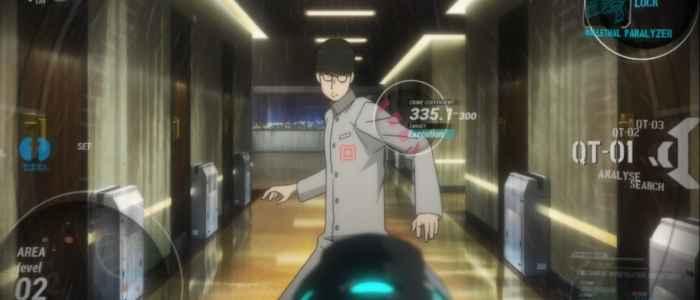
The Sibyl System represents a branch of ethical philosophy known as Utilitarianism, which states that an action is ethically correct if it causes more good for society than bad. For example, the Sibyl System judges whether each person is likely to commit a crime, and uses that assessment to decide whether they are safe to leave in society; if not, they are removed for therapy or executed. While this is obviously bad for the individuals, society as a whole benefits enough from not having criminals on the streets to outweigh the negative effects on those few people.
The practical implementation of this philosophy is through something known as a psycho-pass. A person's psycho-pass is a record of their mental state, including their Hue, which is a measure of their current stress level, and their Crime Coefficient, a measure of their likelihood of committing a crime. People regularly receive "cymatic scans" by scanners placed in buildings and on the streets, which is then processed by the Sibyl System to update their psycho-pass. When a cloudy hue is detected, the police are dispatched to detain the individual and take them to therapy. The Sibyl System is also used to judge people's work proficiencies, effectively determining which careers they can pursue.
However, the Sibyl System raises a lot of ethical issues. For example, if someone's crime coefficient is above a certain number, Sibyl will order their execution regardless of whether they've actually committed a crime. Is this sort of preemptive judgement fair? What if Sibyl makes a mistake? What if a person has a high crime coefficient but is also very valuable to society? Each of the characters in Psycho-Pass poses their own challenges to the Sibyl System.
Kogami and Hammurabi's Code
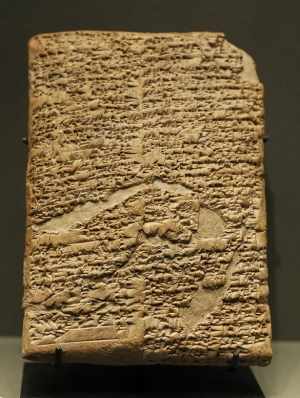
In the year 1754 BCE the ruler of the ancient kingdom of Babylon wrote and passed into law what is now known as Hammurabi's Code. The basic concept embodied by the Code is the idea of a proportional response to crime, encapsulated by the well-known tenant "Eye for an eye, tooth for a tooth". The idea is that any crime should be dealt with by inflicting punishment of the same nature and magnitude as was inflicted upon the victim. This line of thinking is the sort that completely justifies killing to avenge a murder, and therefore becomes the line of thinking adopted by Shinya Kogami after the gruesome death of his friend, Sasayama, at the hands of Makishima Shougo. Although the rest of the time he makes no objection or resistance to the Sibyl System, when it comes to a matter that is truly important to him Kogami decides to defy the System in favour of revenge.
This defiance is more than a simple act; it represents a fundamental rejection of the Sibyl System as an effective arbitrator of justice. By deciding to pursue vengeance instead of allowing the Sibyl System to administer justice, Kogami is asserting that he doesn't believe the System is capable of coming to the right conclusion with regards to Makishima. When it mattered most to him, Kogami did not support the System, but instead struck out and followed his own code of ethics aligning with Hammurabi's code. This, of course, is the cause of his fall.
Ginoza, the Mirrored Reflection of Kogami
Inspector Nobuchika Ginoza is, in many ways, a very similar character to Kogami. They joined the police force at the same time, they work closely together, and many times they seem to think along the same lines. They are equals in detective ability, although Kogami is more effective as he isn't limited by a desire to maintain his psycho-pass. The two characters are parallel – the same but on different paths. Ginoza is who Kogami would have been had he not fallen, and Kogami is exactly what Ginoza is trying hard to avoid becoming. However, Ginoza fails. He falls in the same manner as Kogami, becoming too wrapped in the investigation to deal with his rapidly deteriorating psycho-pass. He refuses therapy in the interest of pursuing justice, which is exactly what Kogami had done before him.
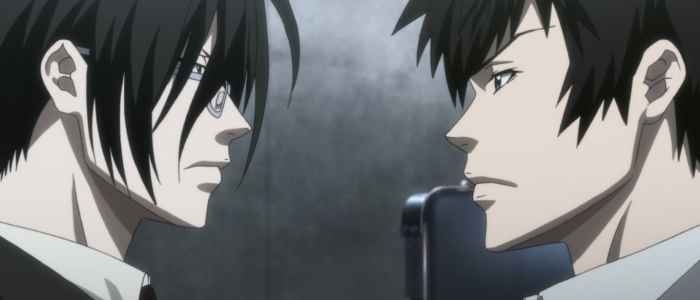
If the two characters are meant to be the same character following different paths but both of them fall, then this raises an interesting question: were their falls inevitable? If both paths led to the same place eventually, was there any way that either of them could have avoided this fate? And if not, why would the Sibyl System deem them capable of performing the role of inspector? While undoubtedly both are excellent detectives, neither seems to have had the mental capacity of doing the job and maintaining a clear psycho-pass.
Furthermore, each is far more capable of doing their jobs as an enforcer. The role of inspector hampers their abilities. In the earlier episodes, it is almost always Kogami who solves the case; he unraveled the mystery of Spooky Boogie, he uncovered the identity of Rikako Oryo, and he was the first one down the trail after Makishima, while Ginoza did little more than sit back and watch. However, it's not because Ginoza is less talented than Kogami, but rather because Ginoza is hemmed in by his role and its psychological demands.
This would suggest that no inspector can be competent and psychologically clean. As Masaoka says, "Now there are Enforcers, but before they created that position, there were many detectives who were diagnosed as latent criminals like that." This is a common, almost inevitable occurrence, so why doesn't Sibyl take that into account and do more to keep the inspectors from falling? The answer lies in the fact just pointed out; enforcers are more capable of doing their jobs than inspectors. Kogami, Ginoza, and probably many others are wasted as inspectors. Their talents can only be used if they have the freedom of thought available to enforcers. Because of this, the Sibyl System not only lets them fall, but actively desires their fall so that they can be of more use to society. The role of inspector, therefore, is not superior to that of an enforcer, but rather a stepping stone towards it.
Masaoka, the Nice Old Traitor
On a similar note, we come to the case of Tomomi Masaoka. When he is discussing how he came to be an enforcer, he explains that he was essentially just too late in accepting the Sibyl System. Other than that, he is mild-mannered and kind. It's hard to imagine him as a dangerous criminal. His mind is too stable to be at risk of a passionate crime, so is his only crime is that he is capable of independent thought from Sibyl. While it's conceivable that allowing too much dissenting thought might be a threat to social order, is it truly necessary to limit someone like Masaoka? When does maintenance of social stability become repression of free thought?
It's possible that the Sibyl System isn't capable of handling cases like Masaoka's properly. For all its brilliance, Sibyl is shown several times to be a less than perfect system. Perhaps, then, Masaoka is simply an unfortunate casualty of error in the still-improving Sibyl System. However, this logic seems awfully convenient, and even flawed when one considers that the Sibyl System does have consciousness. The Sibyl System, though it bases it's decisions on scientifically and logically sound grounds, is capable of overriding its own rules, as shown in the last few episodes. It seems likely, then, that Masaoka is determined to be a criminal because of a choice by the System rather than by mistake.
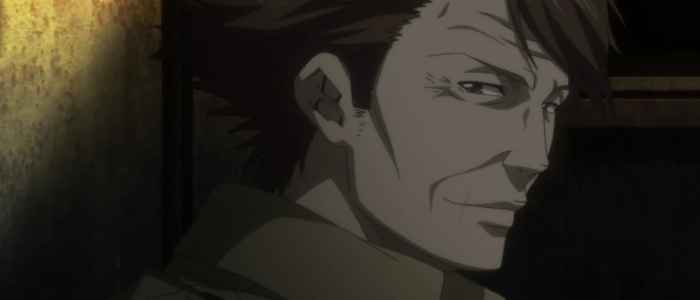
Makishima, the Free-Will Philosopher
Makishima Shougo has a unique point of view of in the show. The Sibyl System represents a branch of ethical theory known as consequentialism, in which the only factor taken into account when determining the ethics of a situation is the end result. In other words, the correct decision is the one with the most favourable results. Makishima opposes this, instead choosing to believe that a decision only has importance because of the motivation and will of the person deciding, an opinion that is much more representative of virtue-based ethics. Of course, Makishima's "virtues" are not very virtuous, but the idea behind virtue-based ethics is that one should act according to what they think is right, regardless of the consequences.
To quote the man himself:
"If the system possesses the power of life and death over you… you're no longer a human. You're livestock. No matter how hard a rancher tries to pretend otherwise, they never recognize their livestock as friends. It's a mystery to me… How is it that these people, treated as livestock in this boring society, have not tried at all to destroy it?"
The idea that no one is willing to stand against Sibyl fascinates him. When analyzed, his actions are understandable; what he wants more than anything else is for someone to stand up to Sibyl as an act of will. Much like us when we root for the rebels fighting against the oppressive overlords, Makishima really just wants to have someone to root for against Sibyl. This is why he helps such terrible criminals commit their misdeeds: they are the only ones who are willing to defy Sibyl. However, the criminals keep showing him that they lack the higher purpose of resistance to the System and are instead motivated by vanity, such as Rikako Oryo, or by shallowness, such as Masatake Midou. Hence, he disposes of them.
This entire article could be about Makishim, but it isn't, so let's move on.
Akane, the One Who Chose
The first episode ofPsycho-Passbegins with Akane joining the Public Safety Bureau. She, like us, has very little idea as to how the MWPSB operates, and therefore serves as a stand-in for the audience by asking the questions we have about the world we're being shown. However, it would be a mistake to assume that her only role in the show is as an audience surrogate. Akane's perspective is distinctly from our own. When we watchPsycho-Pass, we bring with us all of the ingrained assumptions that our social structure is based on. Akane has her own assumptions which are distinctly different from ours. Akane grew up in a society completely structured around the efficacy of the Sibyl System, and with that comes an underlying faith in the Sibyl System. We all like to think that our own social structure is the best one, and Akane is no different. Akane, then, is valuable not because she represents how we feel about the society inPsycho-Pass, but rather how we would feel if we were living in it.
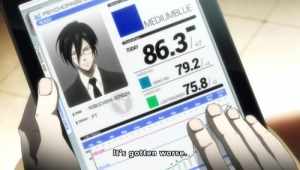
This faith in the System is made evident by her surprisingly stable psycho-pass. Even at her most stressed, when she is reliving the death of her friend before her eyes, her psycho-pass never gets worse than a 79. When you consider that Ginoza is regularly at that level (his psycho-pass is 86 when he sees his therapist), her levels seem astonishingly low. Now, part of this can be put down to her stable disposition, but a large part of it is also explained by her naïve faith in the system. She doesn't always agree with the decisions of Sibyl, but it is apparent in her conversations that she truly does believe in the system, mentioning how someday the enforcers might be treated differently. To use Masaoka's words, "She is, how should I put it… She accepts things as they are. She forgives society, acknowledges it, and accepts it."
That said, she doesn't always agree with Sibyl's judgement. From the very first episode, where she shoots Kogami to prevent him from carrying out Sibyl's orders, to the end of the season, when she convinces Sibyl to override her Dominator so the safety is always off, Akane continuously challenges the decisions of the Sibyl System based on her concept of right and wrong. Of all the characters, Akane's strength in her convictions is equaled only by Kogami.
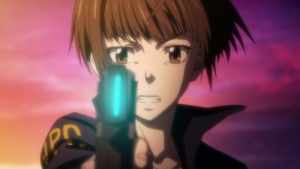
This culminates to a dramatic decision for Akane at the end of the season. She has the true nature of the Sibyl System revealed to her, and she has the chance to take action against it. If she were to reveal to the world the true nature of the Sibyl, she would present an existential threat to the system. In effect, this gives her the power to take down the Sibyl System, should she choose. However, in an act that has sparked controversy among fans, she decides not to act on the information she is given. Through a series of flashbacks, she weighs the argument against Sibyl. A conversation with Makishima helps her realize that free will is an essential part of living a meaningful life. She also comes to the conclusion that The Sibyl System, because of its utilitarian outlook, has a notable flaw in regards to itself and Makishima. Both have committed crimes against humanity, but because their value to society far outweighs this, nether is punished for their actions. Despite this, other than relatively minor acts of defiance, such as bartering for Kogami's life, she goes along with Sibyl's plan.
This decision is not one that many people seem to understand, as it is obvious for us (with our strongly held social values of freedom and democracy) that such a system is inherently immoral and unethical. But is it? By all accounts, the vast majority of the people under the system manage to live happy, productive, and fulfilling lives because of the system, not despite it. Though cases like that of Masaoka are unfortunate, they are comparatively rare. No system is perfect, even the Sibyl System, but that doesn't mean that the Sibyl System isn't the best option available. When making her decision, this is the conclusion that Akane comes to; Sibyl isn't perfect, just better than the alternative.
Ultimately, the question that the society of Psycho-Pass raises is whether the ends justify the means. Is it preferable to have a society that is prosperous and happy but based on a morally and ethically ambiguous system, or to have a system that is morally and ethically sound but is rife with crime and unhappiness?
What do you think? Leave a comment.
Receive our weekly newsletter:
sawyerbrigingening.blogspot.com
Source: https://the-artifice.com/psycho-pass-the-ethics-of-an-ideal-society/
0 Response to "Psychopass Quotes and the System Continues"
Post a Comment